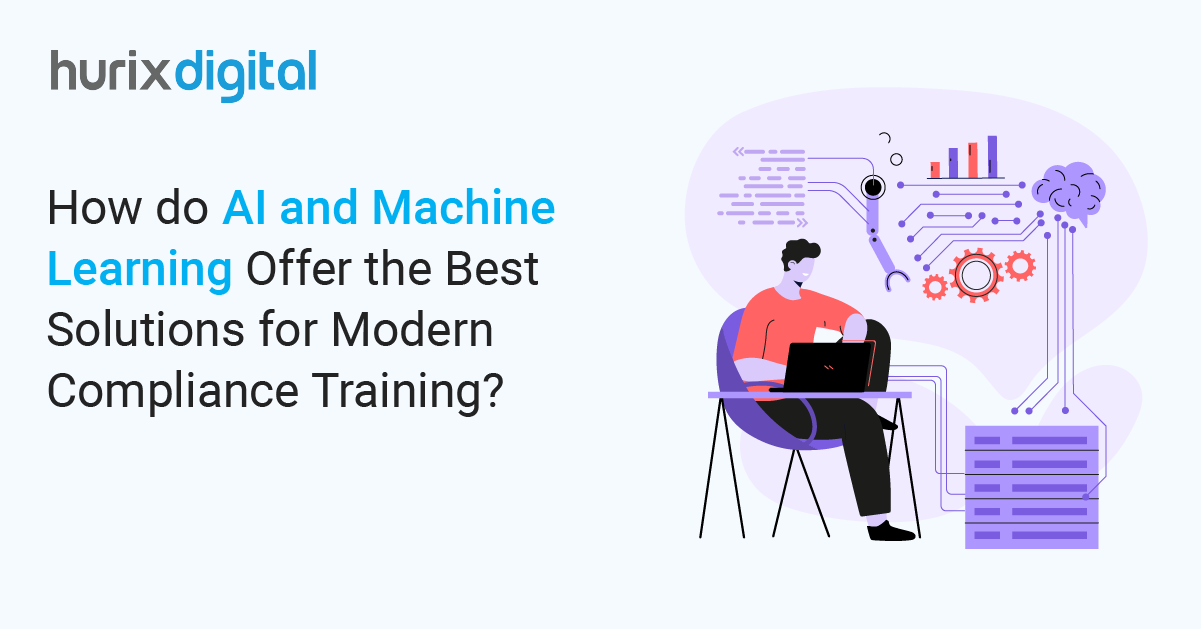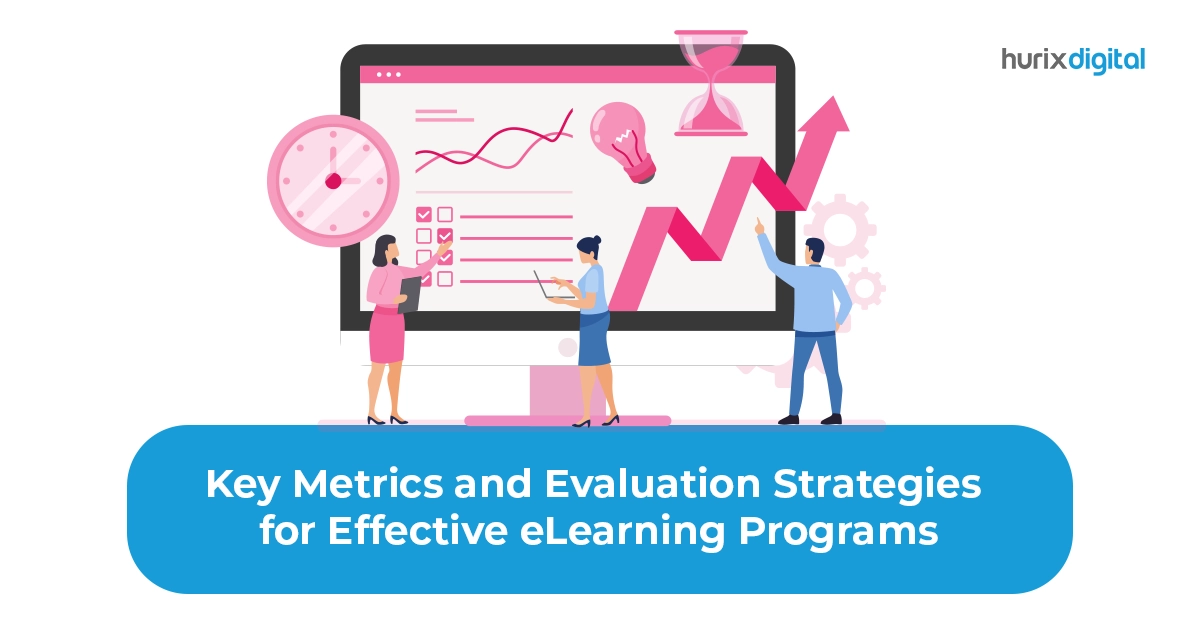
How do AI and Machine Learning Offer the Best Solutions for Modern Compliance Training?
Summary
This blog explores AI in enhancing compliance training through personalized learning, task automation, and keeping employees updated on regulations, with ethical considerations.
Modern organizations are conducting business in a strict regulatory environment. Considering user satisfaction and ethical practices, the need for effective compliance training programs for employees has become indispensable for organizations.
Organizations can develop personalized and adaptive training modules according to the learning preferences of employees by incorporating AI and ML. According to research, 90% of organizations use an LMS for compliance training.
This highlights the essential role these platforms play in managing compliance initiatives. AI and ML technology is integrated with advanced training methodologies which can reshape compliance training in any organization.
This guide delves into the potential of Artificial Intelligence and Machine Learning in enhancing compliance training and development programs.
Table of Contents:
- The Evolution of Compliance Training
- AI in Learning Management Systems
- Role of AI and Machine Learning in Modern Compliance Training
- Ethical Considerations with AI-Powered Compliance Training
- How to Choose the Best AI-Driven Training Programs for Compliance Training
- Why Do Modern Organizations Need Automated Compliance Training?
- The Future of Compliance Training
- Conclusion
The Evolution of Compliance Training
Compliance training in the corporate environment was traditionally more uniform and inflexible. This often led to poor engagement and low employee retention.
These outdated approaches promoted the shift to digital solutions which offered flexibility and scalability in compliance training. AI-powered compliance training is agile and responsive and offers the comprehensive solution required to meet modern demands.
AI in Learning Management Systems
AI-powered Learning Management Systems go beyond traditional methods, offering a sophisticated, adaptive learning environment. It’s about transforming the learning experience and delivering unparalleled personalization.
AI-enhanced training is both informative and interactive. Incorporating AI and Machine Learning in Corporate Training can:
- Automate routine tasks
- Provide personalized training paths
- Save time and resources.
- Ensure better understanding and retention of compliance requirements
- Strengthen continuous monitoring and real-time updates
- Keep employees compliant with the latest regulations
Also Read: Best Practices for Translating and Localizing Workforce Learning Content
Role of AI and Machine Learning in Modern Compliance Training
AI and machine learning are revolutionizing compliance training by initiating the following:
1. Personalized Learning Paths
AI-powered compliance training provides personalized content according to individual learner progress. This ensures personalized experiences that are created considering the employee’s pace and comprehension.
ML compliance training algorithms evaluate employee skills and knowledge. This helps leaders identify gaps and recommends targeted training to cover deficiencies.
2. Content Customization and Recommendations
Automated Compliance Training recommends materials based on job roles, learning history, and compliance needs. ML models scan regulatory updates and incorporate new trends, demands, and requirements into training programs. This ensures access to updated information.
For example, NLP can summarize regulatory text and simplify complex regulations for employees. AI-powered applications also help in verifying employee identity during training, which helps maintain compliance integrity.
3. Enhanced Engagement
AI-powered compliance training simulations create realistic scenarios for practicing compliance tasks. This enhances engagement and offers hands-on experiences in real-world scenarios. AI and Machine Learning compliance in corporate training also introduce gamified elements and interactive content to make training more engaging.
4. Advanced Training Techniques with AI
Leaders can incorporate advanced techniques to augment compliance training within organizations. These are:
- Game-like elements that boost engagement and motivation among learners.
- Realistic, scenario-based learning experiences, that can convert complex compliance concepts to more relatable and understandable subjects.
- Bite-sized microlearning and training opportunities.
5. Efficient Training Management
AI-based compliance training innovations handle tasks such as scheduling, progress tracking, and reminders. This eases the administrative load on training managers. ML analyzes training data to provide key details related to the program’s effectiveness. Such practices help in assessing improvement areas and predicting future needs.
6. Continuous Monitoring and Support
AI chatbots offer 24/7 support, offer resources, and resolve issues as needed. ML algorithms monitor employee behavior to detect non-compliance patterns. This empowers organizational leaders to proactively intervene and offer additional training.
7. Regulatory Compliance and Reporting
AI and ML practices offer the best solutions for modern compliance by generating accurate compliance reports. This ensures up-to-date documentation for audits. ML predicts potential compliance risks and assists organizations in handling them before they escalate.
8. Reward and Recognize
Leaders can use motivational and rewarding elements to make compliance training more engaging. AI tracks progress, offers recognition, and provides performance comparisons. It helps acknowledge the efforts of top performers that encourage a culture of continuous learning and commitment to compliance measures.
9. Dealing with Risks
The best AI-driven training programs and tools empower organizations to uncover hidden risks. This helps in the personalization of training content to meet specific needs. AI-based compliance training results in high completion rates and retention, mitigating organizational risk.
Ethical Considerations with AI-Powered Compliance Training
Before employing AI in compliance training, leaders must take into account these critical ethical considerations:
1. Understanding Risks
It’s crucial to understand the associated risks before integrating artificial intelligence and machine learning compliance in corporate training. You must include addressing potential biases that can impact AI algorithms and lead to unfair practices. Regular audits of your data can ensure fairness in training and assessment.
2. Transparency and Accountability
Transparency in AI compliance training processes is vital for ethical behavior. All stakeholders should understand how AI decisions or recommendations are made. Learners should have the option to opt out of AI-driven features if they have privacy or ethical concerns.
3. Privacy and Data Security
Data privacy and security are paramount. A study showed that 4.7% of employees had pasted confidential information into ChatGPT, with 11% of all pasted information being sensitive. Ensure that data used with AI systems is handled securely and complies with privacy regulations.
4. Evaluation and Validation
GenAI systems can create content that may not always be accurate. It is not advised to rely on GenAI for content creation without expertise in the subject matter. You must always consult professionals and compliance experts when necessary.
5. Copyright and Trade Secrets
Be cautious with the information shared with AI to avoid disclosing trade secrets or infringing on copyright. For example, using AI to generate brand-related specific compliance content can lead to plagiarism or intellectual property theft.
6. Avoid Discrimination
Ensure diverse data for AI training to prevent discrimination based on race, gender, age, or disability. Consider cultural differences in AI implementation for organizations with a global presence. Automated compliance training modules must be formed using ethical principles without promoting unethical behavior or discrimination.
7. Employee Concerns
It is significant to deal with employee concerns about AI in compliance training. Leaders can provide appropriate channels for reporting ethical issues or violations related to AI usage.
How to Choose the Best AI-Driven Training Programs for Compliance Training
Consider these key factors to ensure the compliance training innovations meet your organization’s specific needs:
- Understand the unique compliance training needs of your organization. Evaluate the industry, regulatory complexity, and learning styles of employees.
- Prioritize an LMS with critical AI features like personalized learning paths, predictive analytics, and automated compliance updates. This can enhance training effectiveness.
- Choose an AI-powered compliance training LMS that offers an engaging and intuitive user experience. It should incorporate features like AR/VR, gamification, interactive content, and scenario-based learning.
- Ensure the LMS accommodates new users and updates training materials. Your chosen software must integrate with your existing HR and compliance systems.
- It should be well-equipped with analytics and reporting capabilities to track progress, identify training gaps, and ensure compliance.
Why Do Modern Organizations Need Automated Compliance Training?
Here are some of the key reasons why modern leaders are looking out for the best AI-driven training programs:
1. The Constantly Transforming Regulatory Landscape
In today’s business environment, regulatory demands have become more complex and are constantly evolving. Laws for data protection and stringent financial regulations require businesses to be continuously vigilant and adaptable to stay compliant.
2. The Cost of Non-Compliance
Non-compliance can lead to financial penalties, legal issues, and damage to a company’s reputation. Traditional manual compliance methods are insufficient as they are time-consuming and error-prone.
3. Automating Compliance Monitoring
AI-driven systems can monitor and analyze vast amounts of data to ensure regulatory compliance. They can track changes and automatically update compliance frameworks.
4. Enhancing Risk Assessment with ML
Machine Learning compliance algorithms can predict risks by analyzing historical data patterns. This allows organizations to resolve compliance issues before they cause adverse impacts.
5. Data Quality and Integration
To effectively leverage AI and ML in compliance, integrating high-quality data from diverse sources is essential. This requires robust data management practices and a comprehensive understanding of the data landscape.
6. Training and Continuous Learning
AI and ML implementation in compliance is an ongoing process. Continuous training and updating of algorithms with new regulatory information is necessary to maintain their effectiveness.
The Future of Compliance Training
Integrating AI and ML into compliance protocols can turn regulatory adherence into a competitive advantage. Adopting AI and ML in compliance can drive broader digital transformation, fostering a more data-driven and proactive business approach.
AI and Machine Learning in compliance training modules show how businesses effectively manage regulatory adherence. The successful implementation of these technologies will be crucial for businesses to deal with the complexities of regulatory requirements.
AI can generate customized training programs, sharing essential insights on company conduct and new policies. With personalized learning paths, human-like interactions, and adaptive learning, training becomes more impactful, fostering a culture of continuous improvement.
Check out EXCLUSIVE: Hurix Digital Transforms World’s Leading Trader’s Training Program with 93% Knowledge Improvement
Conclusion
Combining AI with proven educational methods can create relevant content. This integration enhances and ensures that compliance training is effective, up-to-date, and aligned with the latest regulatory requirements. AI in compliance training marks a new era of adaptability where organizations are better positioned to face the challenges of the regulatory environment.
Hurix Digital provides custom eLearning training solutions and consulting services for workforce learning. Contact our experts to ensure that your workforce is compliant, well-informed, and prepared for the future using the best solutions for modern compliance.
Book a discovery call with us today!

A highly enthusiastic and motivated sales professional with over twenty five years of experience in solution selling of training-related applications and services. Maintains an assertive and dynamic style that generates results. Ability to establish long-term relationships with clients built on trust, quality of service and strategic vision. Specializes in financial services, higher ed, publishing and government in the areas of learning and development.








